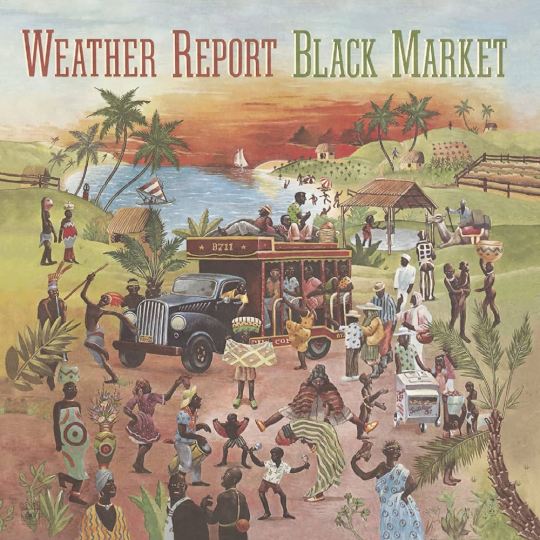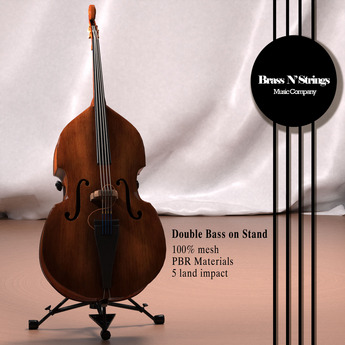#music instrument market
Explore tagged Tumblr posts
Text
#global musical instruments market#music instrument market#music instruments industry#musical instrument market analysis#musical instrument market size#musical instruments market size#musical instruments market#music stores and instruments market research reports#music stores and instruments industry#music stores and instruments industry research reports#music stores and instruments market companies#music stores and instruments market revenue#music stores and instruments market#global music stores and instruments industry#global music stores and instruments market#music stores and instruments market top players#music stores and instruments market growth#music stores and instruments market size#music stores and instruments market analysis#musical instrument industry research report#global musical instruments market size#indian musical instruments market#music instrument market in india#music instrument market size#music stores and instruments market future outlook#music stores and instruments market share#music stores and instruments market trends#musical instrument market share#musical instrument market trends#research report on musical instruments
0 notes
Text
Music Stores and Instruments Industry Trends, Challenges, and Opportunities
The Music Stores and Instruments industry is a vibrant sector that caters to the diverse needs of music enthusiasts, from professional musicians to hobbyists. This industry is characterized by a dynamic mix of traditional brick-and-mortar stores and online platforms, offering a wide range of instruments, accessories, and services to meet the evolving demands of the music community.
Market Size and Growth
The Global Music Stores and Instruments market size was valued at USD 12.4 billion in 2023 and is projected to reach USD 16.5 billion by 2028, growing at a CAGR of 5.1%. This growth is driven by factors such as the increasing popularity of music education, the rise of online music platforms, and the growing demand for high-quality instruments and accessories.
Trends Shaping the Industry
Digital Transformation: The industry is witnessing a significant shift towards digital platforms, with online music stores and e-commerce platforms becoming increasingly popular. This trend is driven by the convenience and accessibility offered by online shopping, as well as the growing demand for digital music content.
Sustainability and Eco-Friendliness: The industry is placing greater emphasis on sustainability and eco-friendliness, with many music stores and manufacturers adopting environmentally friendly practices and products.
Personalized Experiences: Music stores are focusing on providing personalized experiences for customers, including customized instrument setups, lessons, and workshops.
Challenges and Opportunities
Competition from Online Platforms: The rise of online music platforms and e-commerce sites poses a significant challenge to traditional music stores, as customers increasingly opt for the convenience and affordability of online shopping.
Regulatory Compliance: Music stores must navigate complex regulatory requirements, including copyright laws and licensing agreements, to ensure compliance and avoid legal issues.
Emerging Opportunities: The industry is poised to capitalize on emerging opportunities such as the growth of the music education market, the rise of virtual and augmented reality technologies, and the increasing demand for high-quality instruments and accessories.
Top Players in the Industry
Key players in the Music Stores and Instruments industry include Guitar Center, Musician's Friend, Sam Ash Music, and Yamaha Corporation. These companies are known for their strong brand recognition, innoglobal musical instruments marketvative offerings, and commitment to providing high-quality instruments and services to the music community.
Future Outlook
As the Music Stores and Instruments industry continues to evolve, the convergence of digital transformation, sustainability, and personalized experiences will shape the future landscape of this dynamic sector. Addressing regulatory challenges, fostering industry collaboration, and capitalizing on emerging opportunities will be crucial for the industry's continued growth and success.
FAQs:
1. What is the current size of the global Music Stores and Instruments market?
The global Music Stores and Instruments market size was valued at USD 12.4 billion in 2023 and is projected to reach USD 16.5 billion by 2028, growing at a CAGR of 5.1%.
2. What are the key trends shaping the Music Stores and Instruments industry?
The key trends shaping the Music Stores and Instruments industry include digital transformation, sustainability and eco-friendliness, and personalized experiences.
3. What are the major challenges faced by the Music Stores and Instruments industry?
The Music Stores and Instruments industry faces challenges such as competition from online platforms, regulatory compliance, and the need to adapt to changing consumer preferences.
4. What opportunities exist in the Music Stores and Instruments market?
Opportunities in the Music Stores and Instruments market include the growth of the music education market, the rise of virtual and augmented reality technologies, and the increasing demand for high-quality instruments and accessories.
5. Who are the leading players in the Music Stores and Instruments industry?
The key players in the Music Stores and Instruments industry include Guitar Center, Musician's Friend, Sam Ash Music, and Yamaha Corporation.
#global musical instruments market#music instrument market#music instruments industry#musical instrument market analysis#musical instrument market size#musical instruments market size#musical instruments market#global music stores and instruments market#music stores and instruments market top players#music stores and instruments market growth#music stores and instruments market size#music stores and instruments market analysis
0 notes
Text

piano phone 🎹 ☎️
#thrift finds#antiques#flea market#goodwill#retrocore#trinkets#kidcore#weirdcore#clowncore#vintage#piano#piano music#piano tutorial#pianoplayer#music#musical instruments#instrument#kitsch#vintage kitsch#kitschy#vintage design#vintage decor#vintage phone#old phone#antiquing finds#antique#vintage camera#vintage clock#vintage magazine#vintage fashion
47 notes
·
View notes
Text



good days aren't easy to come by
#simblr#ts4 legacy#valentine gen 4#fun fact for context on why i care so much abt him finally choosing to play the piano on his own#but it's gonna get Long so strap in#basically. the guitar he used to have had been with him since he was like...... my god. probably about 15#he bought it at a yard sale for pennies from an older woman#it belonged to her late son originally and it wasn't even . supposed to be a part of the sale in the first place. she just took a liking to#devin and figured that really it's better in the hands of someone who would use it than for it to collect dust in her garage forever#and he couldn't really practice at home. his parents... are not exactly the kindest people you've ever seen#he was too afraid of them destroying or throwing it away so he'd sneak off to god knows where and learn how to play it from old#youtube videos on his busted up phone#it quickly became Everything to him. his most prized possession. and it wasn't a shitty guitar either. the son was a professional musician#that's how ellie and devin met in the first place. he was playing at the market she used to sneak out to in the evenings to#and she instantly knew . this boy is going places and really they might as well go together#enough backstory of the backstory. long story short: he was struggling to make rent eventually and was out of vinyls to pawn off#so he had no choice left. it was either that or he'd get kicked out along with his sister. who was still struggling a lot w/ addiction#so he sold it. and it broke him. he's literally just not been the same since losing it#his sister stole him a guitar from a music shop she'd go to sometimes but it just wasn't the same and he had not played an instrument since#until now anyway#still not a guitar. but maybe someday#or he can find his old one and buy it again.........#lmfao if you made it here congrats. you win nothing bc im broke but i do respect you
35 notes
·
View notes
Text
youtube
Hold On To Our Earth | A song for global warming
#music streaming#gamethon#free music download#best music apps#top music genres#new music releases#music production software#music education#music lessons online#best headphones for music#music festivals 2024#music licensing#royalty free music#background music#workout music#study music playlist#classical music#pop music#rock music#hip hop music#jazz music#music marketing tips#indie music#electronic music#new artists to watch#relaxing music#instrumental music#Hold On To Our Earth Song#global warming#climate change
4 notes
·
View notes
Text
An Album a Day 2024: Day 154
Jun. 2, 2024

Weather Report - Black Market (1976)
Jazz fusion, Instrumental
#listen to music#an album a day 2024#2024#music#jazz#jazz fusion#instrumental#weather report#world music#black market#instrumental music#black music month#pride month#70s music#fusion
6 notes
·
View notes
Text
From Electricity to the Internet
#digitalinnovation#digitalinsights#the internet#electricity#ecommerce#business growth#branding#onlinebusiness#marketing#website#website design#digital marketing#template#instrumentals#musical instruments
2 notes
·
View notes
Text
Playlists and YouTube: Organizing Content for Better User Experience

In the world of YouTube, user experience plays a critical role in determining the success of a channel. One of the most effective tools for enhancing user experience is the strategic use of playlists. Playlists offer a streamlined and organized approach to presenting your content, keeping viewers engaged and on your channel for longer periods. This article explores the importance of YouTube playlists and provides actionable tips on how to leverage them to enhance your channel and create a better user experience.
The Significance of Playlists on YouTube:
Playlists offer a range of benefits that can help improve your channel's performance and enhance the viewer's experience. Here's why they are essential:
1. Organize Your Content:
Playlists allow you to categorize and group related videos together, making it easy for viewers to find content on a specific topic.
2. Increase Watch Time:
By keeping viewers engaged with consecutive videos, playlists can increase watch time, which is a key factor in YouTube's algorithm.
3. Enhance Discoverability:
Playlists can rank in search results, providing another way for your content to be discovered by new viewers.
4. Foster Binge-Watching:
Playlists encourage viewers to watch multiple videos in a row, keeping them on your channel longer and increasing the likelihood of engagement.
5. Provide a Curated Experience:
Playlists offer a seamless, curated viewing experience, making it easier for viewers to navigate your content and stay engaged.
Tips for Organizing Content with YouTube Playlists:
1. Create Thematic Playlists:
Group related videos into thematic playlists based on topics, series, or content type.
This organization helps viewers quickly find content that interests them and encourages binge-watching.
2. Use Descriptive Titles and Descriptions:
Choose clear, concise titles for your playlists that accurately reflect the content.
Write informative descriptions that provide context and keywords for better searchability.
3. Prioritize Content Order:
Arrange videos within playlists in a logical sequence to guide viewers through your content.
Start with the most engaging or relevant videos to hook viewers from the start.
4. Feature Playlists on Your Channel Page:
Use the "Customize Channel" option to feature playlists on your channel page.
Highlight playlists related to your channel's focus or current themes to attract viewer interest.
5. Create Playlists for Different Audiences:
Tailor playlists to different segments of your audience based on their preferences and interests.
For example, create playlists for tutorials, reviews, or vlogs to cater to specific viewer demographics.
6. Leverage Playlist SEO:
Incorporate relevant keywords in your playlist titles and descriptions to improve search rankings.
Use tags and metadata that align with the content in the playlist for better discoverability.
7. Use Playlists for Series and Episodic Content:
If you produce series or episodic content, organize it into playlists for easy navigation.
Provide clear numbering in titles or descriptions to guide viewers through the series.
8. Monitor Playlist Analytics:
Keep an eye on analytics to understand how playlists perform and how viewers engage with them.
Use this data to optimize playlists, rearrange videos, or create new playlists based on viewer preferences.
9. Promote Playlists Across Platforms:
Share playlists on other social media platforms to drive traffic to your YouTube channel.
Create teasers or previews of playlist content to attract viewers.
10. Collaborate and Curate:
Collaborate with other creators to curate playlists featuring both your videos and theirs.
Cross-promote playlists to expand your reach and engage new audiences.
Conclusion: Elevate User Experience with YouTube Playlists
Playlists are a powerful tool for organizing and showcasing your content on YouTube. By leveraging playlists effectively, you can enhance the user experience, increase watch time, and improve discoverability. Take advantage of the tips provided in this guide to create a seamless and engaging viewing experience for your audience.
Remember, playlists are not just a way to categorize your videos; they are a strategic asset that can help grow your channel and keep viewers coming back for more. Experiment with different playlist strategies, analyze your results, and continually refine your approach to maximize the benefits of playlists on YouTube. Happy creating!
-Read More Related Article => ProstSMM
#smm panel#smm#youtbe#youtube monetization#youtube marketing#india smm panel#smm panel india#cheap seo packages#social marketing#best smm panel#digital marketing#youtube video#smm marketing#instrumental#new music#youtube#tasdelivery#youtube music
2 notes
·
View notes
Text
Oh so if I want a string instrument I have to know what TYPE I want? Nobody is willing to put a board for a neck and some strings on any old box for me and call it a day? It has to be some min $200 masterpiece of craftsmanship?
#I’m so spoiled by piano. nobody wants their pianos. people will pay you to take away their pianos.#what I want is a MANDOLA but I’m in nowheresville Canada and have zero chance of getting a mandola#I don’t like the high pitched instruments so much#if I did I’d just play ukulele which I already have#it’s not that deep! I just want a box to make noise with!#I’m not a musician#I’m so bad at music that I FAILED piano… I didn’t even know you could fail at hobbies! somehow I did it!#ok that’s a lie I plod along uselessly in my study of piano to this day#but the point is I am a single person market for crude handmade instruments and there are NONE in my whole ass province
2 notes
·
View notes
Text
Epic Trailer – Cinematic, dramatic orchestral background music in the’Two Steps from Hell’ style. Great for films, action scene videos TV and film production, audiobooks, games , trailers , teasers or for any other uses. --------------
You can purchase this track without watermark(voice) in highest quality here: https://audiojungle.net/item/epic-trailer/17111832
#background music#royalty free music#music for video#instrumental music#youtube music#video marketing#trailer music#movie trailer#action#action movies#prime video#cinematic orchestral music#cinema#movie#soundcloud#soundtrack#audio#SoundCloud
3 notes
·
View notes
Text
Top Must-Have Instruments for Music Lovers in 2024
The global musical instruments market size was valued at $9,826.5 million in 2020 and is projected to reach $11,589.8 million by 2030, registering a CAGR of 1.7% from 2021 to 2030. The market was worth USD 18.63 billion in 2022 and is expected to grow from USD 19.25 billion in 2023 to USD 24.53 billion by 2030, exhibiting a CAGR of 3.52% during the forecast period. Another report estimates the market size to be USD 14.20 billion in 2022 and projects it to expand at a CAGR of 7.4% from 2023 to 2030 to reach USD 25.13 billion.
Music Stores and Instruments Market Growth and Revenue
The growing popularity of live concerts and performances is propelling the industry forward. Approximately 63% of consumers are hobbyists, including recreational players, aspiring professionals, students, and parents of students. Children who begin learning musical instruments at a young age are more likely to develop an interest in music in the long run. The rising influence of western music in countries such as China, Japan, and India has also contributed to the market's growth.
Music Stores and Instruments Industry Trends
Customization of musical instruments such as pianos and electronic guitars is an important market trend. Leading market players offer customized, visually appealing, and high-quality products. Customers can customize their musical instruments in terms of size and shape, as well as design guitar necks and inlays and select between traditional and hardwood options. The integration of advanced technologies into music instruments, such as digital interfaces, smart instruments, and mobile applications for learning and composing, is also boosting the market's growth.
Music Stores and Instruments Market Challenges
The COVID-19 pandemic significantly impacted the music instrument manufacturing sector. Lockdowns and movement restrictions led to disruptions in the global supply chains, affecting the availability of raw materials and components needed for instrument manufacturing. Economic uncertainties also led to decreased consumer spending on luxury items, affecting the demand for music instruments. The high cost of electronic instruments, especially advanced synthesizers, digital keyboards, and electronic drum kits, may deter beginners or casual musicians from entering the market, limiting the growth of the entry-level segment.
Music Stores and Instruments Industry Opportunities
The rising popularity of traditional folklore music in countries such as India and Indonesia presents opportunities for market growth. The development of digital technology has led to the creation of digital pianos, electronic keyboards, and synthesizers, offering a broad range of sounds, effects, and features impossible with traditional analog instruments. The integration of smart technology into instruments has given rise to smart guitars, pianos, and other instruments connected to smartphones and tablets.
Music Stores and Instruments Market Top Players and Companies
Some key players operating in the musical instruments market include Yamaha Corporation, Kawai Musical Instruments Mfg. Co. Ltd., Guangzhou Pearl River Piano Group Ltd., Casio Computer Co. Ltd., C.F. Martin & Co. Inc, D'addario & Company Inc., Eastman Music Company, Fender Musical Instruments Corporation, Roland Corporation, Steinway & Sons, and Yanagisawa Wind Instruments Co. Ltd.
Music Stores and Instruments Industry Future Outlook
The global musical instruments market is expected to continue growing in the coming years, driven by factors such as the rising popularity of live concerts and performances, the growing number of music enthusiasts, and the integration of advanced technologies into music instruments. However, challenges such as the high cost of electronic instruments and the impact of the COVID-19 pandemic may hinder the market's growth to some extent. Overall, the future outlook for the music stores and instruments industry remains positive, with opportunities for growth in various regions and segments.
Conclusion
The music stores and instruments market is poised for growth, driven by technological advancements, rising disposable income, and the growing popularity of live performances. However, the market faces challenges such as the high cost of electronic instruments and the impact of the COVID-19 pandemic. To capitalize on the opportunities, market players should focus on developing sustainable and technologically advanced products to cater to the evolving needs of consumers.
#global musical instruments market#music instrument market#music instruments industry#musical instrument market analysis#musical instrument market size#musical instruments market size#musical instruments market#music stores and instruments market research reports#music stores and instruments industry#music stores and instruments industry research reports#music stores and instruments market companies#music stores and instruments market revenue#music stores and instruments market#global music stores and instruments industry#global music stores and instruments market#music stores and instruments market top players#music stores and instruments market growth#music stores and instruments market size#music stores and instruments market analysis#musical instrument industry research report#global musical instruments market size#indian musical instruments market#music instrument market in india#music instrument market size#music stores and instruments market future outlook#music stores and instruments market share#music stores and instruments market trends#musical instrument market share#musical instrument market trends#research report on musical instruments
0 notes
Text
Exploring the Music Stores and Instruments Market
The music stores and instruments market serve as the foundation for musical exploration and expression, providing aspiring and seasoned musicians with the tools and resources to bring their creativity to life. This article delves into the current state of this dynamic market, examining its size, share, growth trajectory, and the key trends shaping its future.
Music Stores and Instruments Market Size and Share:
The music stores and instruments market were valued at USD 18.63 billion in 2022 and is projected to reach USD 24.53 billion by 2030, exhibiting a steady CAGR of 3.52%. This growth can be attributed to several factors, including:
Rising disposable income: Increasing disposable income, particularly in emerging economies, allows individuals to invest in hobbies and musical pursuits.
Growing interest in music education: A growing emphasis on music education in schools and the increasing popularity of online music lessons fuel the demand for instruments and learning resources.
Evolving consumer preferences: The demand for high-quality, unique, and personalized instruments is rising, driving innovation within the market.
The market share is dominated by established instrument manufacturers like Yamaha, Gibson, and Fender, which control a significant portion of the global market. However, independent music stores and online retailers are gaining traction, offering diverse product selections and catering to niche markets.
Musical Instruments Market Growth and Revenue:
The musical instruments market is expected to witness a CAGR of 3.52% over the next five years, reaching a projected revenue of USD 24.53 billion by 2030. Several factors contribute to this projected growth:
Expansion of online retail: The growth of online retail channels allows for wider product accessibility, convenience, and competitive pricing.
Increasing urbanization: The rise of urban populations, particularly in developing regions, creates new opportunities for music education and instrument ownership.
Growing popularity of specific instruments: The increasing popularity of instruments like ukuleles, digital pianos, and electronic instruments is driving market diversification.
Musical Instruments and Accessories Market Trends:
Several trends are shaping the future of the musical instruments and accessories market:
Sustainability: Consumers are increasingly opting for eco-friendly instruments made from sustainable materials like recycled wood or bamboo.
Technology integration: The integration of digital technology into instruments, such as smart guitars and electronic drums, is enhancing playability and offering new learning opportunities.
Personalization: The demand for personalized instruments tailored to individual needs and preferences is rising, driving innovation in design and manufacturing.
Types of Musical Instruments:
The music stores and instruments market encompass a wide variety of instruments, categorized by:
String instruments: Guitars, violins, cellos, basses, etc.
Wind instruments: Flutes, clarinets, saxophones, trumpets, etc.
Percussion instruments: Drums, cymbals, xylophones, etc.
Keyboard instruments: Pianos, keyboards, synthesizers, etc.
Electronic instruments: Electric guitars, electronic drums, synthesizers, etc.
Music Stores and Instruments Industry Outlook:
The music stores and instruments industry outlook remain optimistic, with continued growth expected despite the challenges posed by online competition and economic fluctuations. The industry's ability to adapt to evolving consumer preferences, embrace technological advancements, and cater to niche markets will be crucial for sustained success.
In conclusion, the music stores and instruments market play a vital role in nurturing musical passion and fostering creativity. With its diverse product offerings, evolving trends, and promising outlook, the market is well-positioned to continue its harmonious growth, serving as a valuable resource for musicians worldwide as they embark on their musical journeys.
#music instrument market#music equipment#global musical instruments market#music instruments industry#market research#business#ken research#market analysis#market report#market research report
1 note
·
View note
Text
youtube
#eternity#ambient#experimental#experimental music#ambient music#synthesizer#synthetic#chill#chill vibes#chill music#relaxing music#instrumental#relaxing#meditative#hypnotic#royalty free music#art#artists on tumblr#art market#piano music#Youtube
5 notes
·
View notes
Text
Double Bass | Brass N` Stings
Brass N' Strings Music Company's new Double Bass for the virtual community. With realistic design and low land impact, it's perfect for virtual performers. Available in-world and SL marketplace, it's ideal for elevating your virtual music experience.
New Double Bass by Brass N’ Strings Music Company in Second Life Brass N’ Strings Music Company, a leading interactive brand in the virtual world of Second Life, has launched a brand-new classical instrument—the Double Bass. This meticulously crafted virtual Double Bass is now available for purchase in-world and on the Second Life Marketplace, perfect for music enthusiasts and virtual performers…

View On WordPress
#artist#branding#Brass N Strings#design#digital#digital marketing#double bass#game design#in-game purchase#instruments#marketplace#music#music company#music lover#musical#orchestra#PBR#physically based rendering#product presentation#review#second life#SL#virtual community#virtual dispensary#virtual merchandise#virtual performer#virtual world
0 notes
Text
youtube
I Love You - The Perfect Love Song to Share with Someone Special | Gamethon Music
#music streaming#gamethon#free music download#best music apps#top music genres#new music releases#music production software#music education#music lessons online#best headphones for music#music festivals 2024#music licensing#royalty free music#background music#workout music#study music playlist#classical music#pop music#rock music#hip hop music#jazz music#music marketing tips#indie music#electronic music#new artists to watch#relaxing music#instrumental music#i love you#i love you song#Youtube
3 notes
·
View notes
Text
Musical Instruments Market: Consumer Preferences and Buying Behavior
0 notes